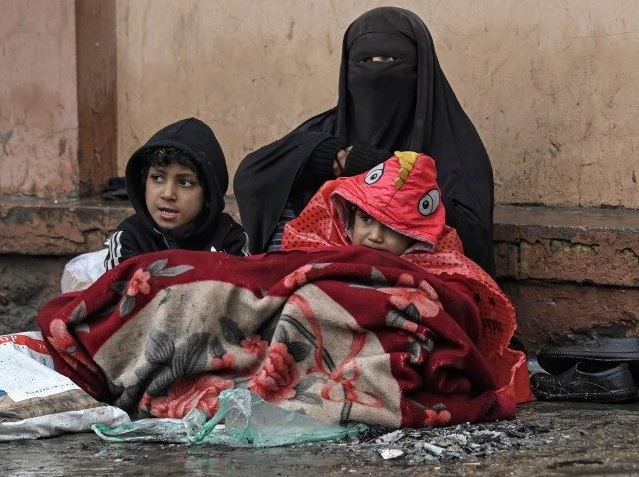Some Afghans starving amid the dire economic fallout resulting from the Taliban’s seizure of the country’s government last August have been forced to sell their “children and kidneys” in desperate bids to earn money for food.
“In our first few days in Herat, we’ve met whole families who’ve sold their kidneys so they can eat,” the British news outlet reported on January 28 after sending journalists to Afghanistan in recent days.
“In one case, three brothers and their two sisters told us they flogged [sold] their organs for around £1,150 [$1,583] apiece to buy food for the rest of the family,” Sky News relayed.
Journalists for the news site said they met an Afghan mother who claimed her toddler child recently “starved to death.”
“We’ve heard multiple parents tell us how they’re now resorting to selling their children,” Sky News further revealed.
Foreign aid facilitated by the U.S. government — which backed Kabul’s former, internationally recognized government from about 2001 to 2021 — propped up Afghanistan’s economy over the past two decades. Foreign aid accounted for 42.9 percent of Afghanistan’s gross domestic product (GDP) of $19.8 billion in 2020, according to World Bank data.
“Afghanistan’s economy is shaped by fragility and aid dependence,” the global lender said at the time.
The Taliban deposed Kabul’s U.S.-supported government on August 15, 2021, seizing control of Afghanistan for the second time. It previously ruled the country from 1996 to 2001. The political upheaval alarmed international aid organizations accustomed to sending Kabul donations through agreements brokered by Washington-approved Afghan government officials. Washington itself blocked the Taliban’s access to approximately $9.4 million in reserves in Afghanistan’s central bank on August 17, 2021, in retaliation for the group’s sacking of Kabul. The international community likewise halted foreign aid flows to Afghanistan shortly afterward, causing the country’s already weak economy to spiral downward. The impact of Afghanistan’s foreign aid freeze was further complicated by pre-existing economic sanctions imposed on the country by the U.S. and the United Nations (U.N.) to target the Taliban — a Sunni fundamentalist group based on Islamic law, or sharia — in 2001 that remain in place today.
Afghanistan’s GDP has contracted 30 percent since the Taliban seized control of the country last summer, U.N. Secretary-General Antonio Guterres revealed on January 26 while reporting that the nation’s economy was “on the brink of collapse.”
“Afghanistan is hanging by a thread,” he remarked.
“The United Nations has warned that nearly 23 million people — about 55 percent of the population — are facing extreme levels of hunger,” the U.S. government-funded Radio Free Europe/Radio Liberty (RFE/RL) reported on January 28.
“Children are bearing the brunt of the crisis, with 14 million at risk of starvation this winter,” according to U.N. data.
“Foreign aid workers and Afghan medical staff estimate that dozens of children, mostly under the age of 5, are dying of starvation every week across the country,” according to the report.

 Entertainment5 days ago
Entertainment5 days ago
 Health1 week ago
Health1 week ago
 Health4 days ago
Health4 days ago
 Football1 week ago
Football1 week ago
 Football1 week ago
Football1 week ago
 Crime4 days ago
Crime4 days ago
 Education6 days ago
Education6 days ago
 Crime1 week ago
Crime1 week ago

